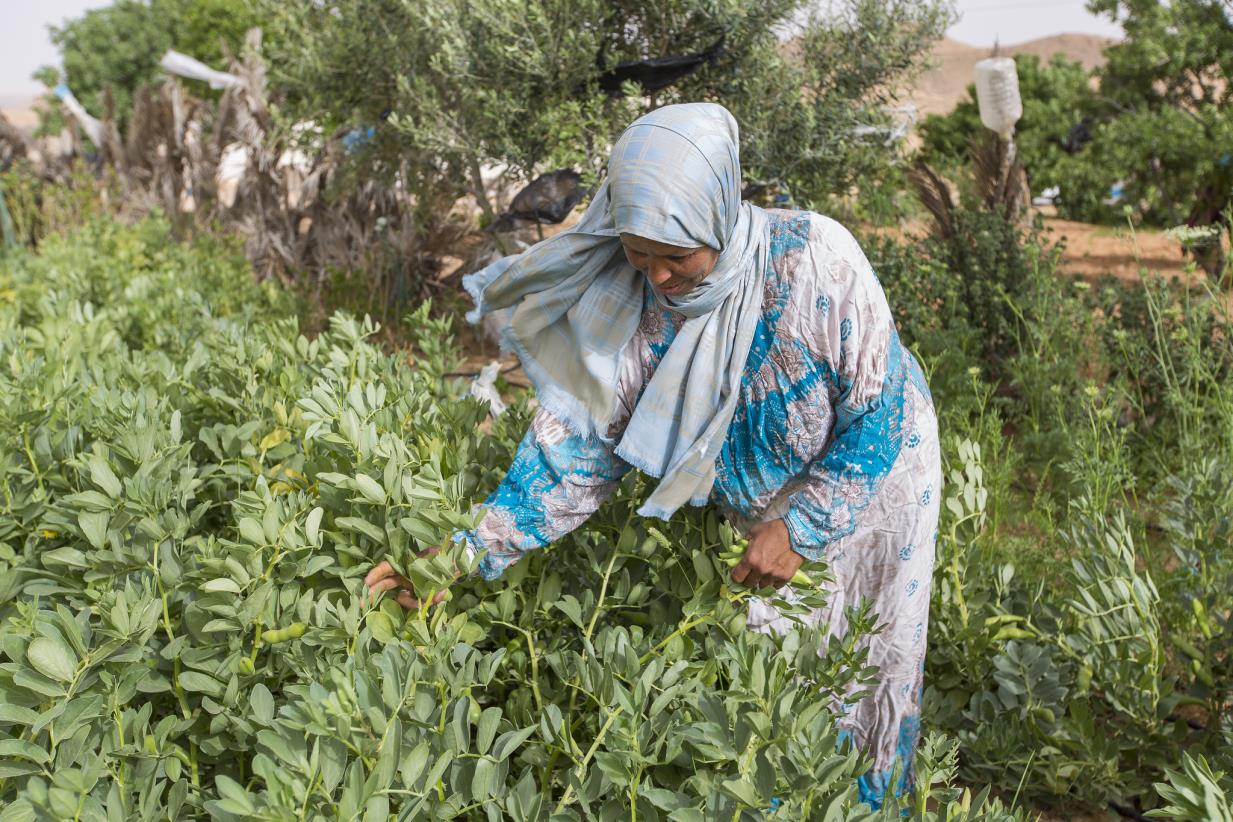FAO Analysis shows how Nationally Determined Contributions are lighting the way for climate action in the Near East and North Africa region

Agriculture is one of the sectors most affected by climate change, but as a recent FAO report ‘Regional analysis of the Nationally Determined Contributions in the Near East and North Africa’ illustrates, agriculture is also a key part of the solution to addressing the climate crisis, particularly in the Near East and North Africa (NENA) region, one of the most water-scarce areas in the world.
Nationally Determined Contributions (NDCs) represent a country’s commitment to act on mitigation and adapt to changes in climate, report on progress made, and identify needs for support as set out in the landmark Paris Agreement. The report, part of a series of regional-level analyses of the NDCs developed by FAO, provides a unique, sector-specific synthesis of the agriculture, water and land use sectors in the NDCs from the Near East and North Africa. It summarizes the substantial contributions already put forward by countries, opportunities for further action and the gaps, barriers and needs that should be addressed in the region to raise mitigation and adaptation ambitions.
Nationally Determined Contributions (NDCs): a detailed snapshot of the NENA region
The NENA region is characterized by great diversity in terms of farming systems and climate risks. In recent years, droughts, floods, storms, locust outbreaks and more recently, the COVID-19 pandemic, have had significant effects on agricultural productivity in the region, compounding the increasing pressures on water and land resources. Looking ahead, regional projections predict temperature increases of between 1.7 to 2.6 °C, some of them up to 5 °C compared to pre-industrial levels. Rainfall will decrease in many areas, with precipitation becoming more unpredictable and extreme in others. These challenges are amplified in countries facing protracted crises, conflict and food insecurity. The FAO analysis of NDCs from the region shows that:
- Water scarcity, land degradation and desertification are the dominant slow-onset events of concern in the region.
- Crops, fisheries and livestock systems emerge as the most vulnerable to productivity decrease, pests and disease, soil erosion and water shortages.
- Total emissions in the region are set to double by 2030 as compared to 2015 levels.
- The Agriculture, Forestry, and Other Land Use (AFOLU) sector contributes 15 percent of total emissions with the most prominent source being livestock.
Nationally Determined Contributions (NDCs): paving the way for targeted climate action
The NDCs give a snapshot of challenges in the region but they also pinpoint key areas of action. For example, the FAO analysis shows that all NENA countries are prioritizing adaptation, with priority strategies ranging from the deployment of drought- and heat-resistant crop and livestock varieties, land and soil conservation, to measures addressing food security and livelihoods with special emphasis on vulnerable populations such as on- and off-farm diversification. Given the impact of livestock on total emissions in the region, the NDCs point to the enormous potential for promoting livestock-specific mitigation, such as improved feeding and breeding practices, and better-integrated crop-livestock strategies to maximize adaptation co-benefits. The analysis highlights that climate finance and technology needs are a priority for most countries in the region. Countries are also calling for the enhancement of capacities to track adaptation and mitigation progress, implementation of climate-smart agricultural practices, as well as bridging the climate finance gap for adaptation.
Building back better through agriculture
With the next round of revisions of the NDCs still being submitted, this report will help to take stock of the priorities, needs and cumulative commitments for the NENA region in the agriculture, water and land use sectors towards achieving the Paris goal. It will also help to set the baseline for understanding how new or updated NDCs have enhanced the role of agriculture in their mitigation and adaptation strategies over time. “This analysis can shape FAO’s support to countries in the region and promote the implementation of agriculture, water and land use priorities in their NDCs ensuring that the food system is climate- and water-resilient and remains a viable source of livelihood for millions of smallholders,” said Dr. Abdulhakim Elwaer, Assistant Director General of the FAO Regional Office for the Near East and North Africa.
The report comes at an ideal time with the United Nations Framework Convention on Climate Change (UNFCCC) COP 27 and COP28 being hosted by the region in the next two years. The launch of the report at the Middle East and North Africa Climate Week 2022 (28-31 March) will bring a number of country representatives together to highlight common priorities and pathways for improved coordination and understanding of the needs of the AFOLU sector, including the achievement of related targets under the Sustainable Development Goals (SDGs) and ongoing activities under the UNFCCC including the Koronivia Joint Work on Agriculture (KJWA). “As the world prepares for COP27 in Egypt and COP28 in UAE, this regional analysis of NDCs provides a unique piece of evidence for the need to adopt climate-smart and innovative agricultural practices to tackle the climate crisis and ensure food security in the region”, said Dr. Zitouni Ould-Dada, Deputy Director, Office of Climate Change, Biodiversity and Environment.
